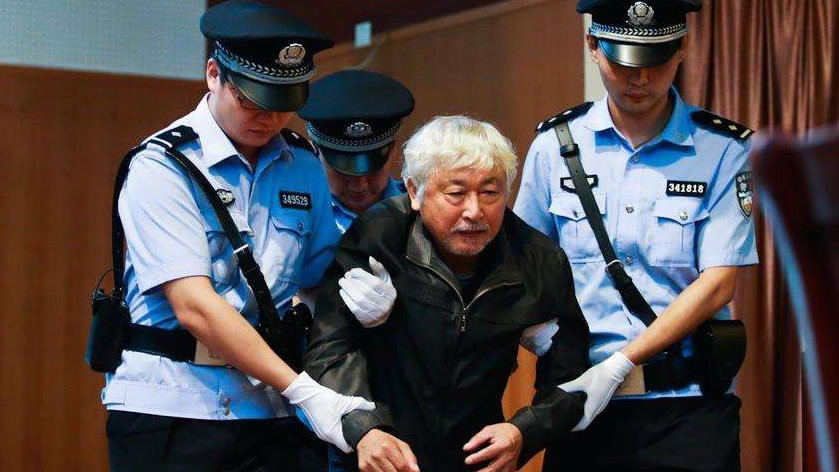Saturday marks the 14th International Anti-Corruption Day designated by the United Nations General Assembly. Under the leadership of President Xi Jinping, China has stepped up its anti-graft drive by creating an integrated system that puts all public servants under supervision.
The reform of the national supervision system, which will see the establishment of supervisory commissions at the national, provincial, city and county levels, is China's latest move to "secure a sweeping victory" in its
fight against corruption.
Sharing offices and working together with the ruling Communist Party of China's (CPC) disciplinary inspection commissions, the new commissions will be able to supervise everyone in the public sector exercising public power, including those who are not members of the CPC and those not working in the government.
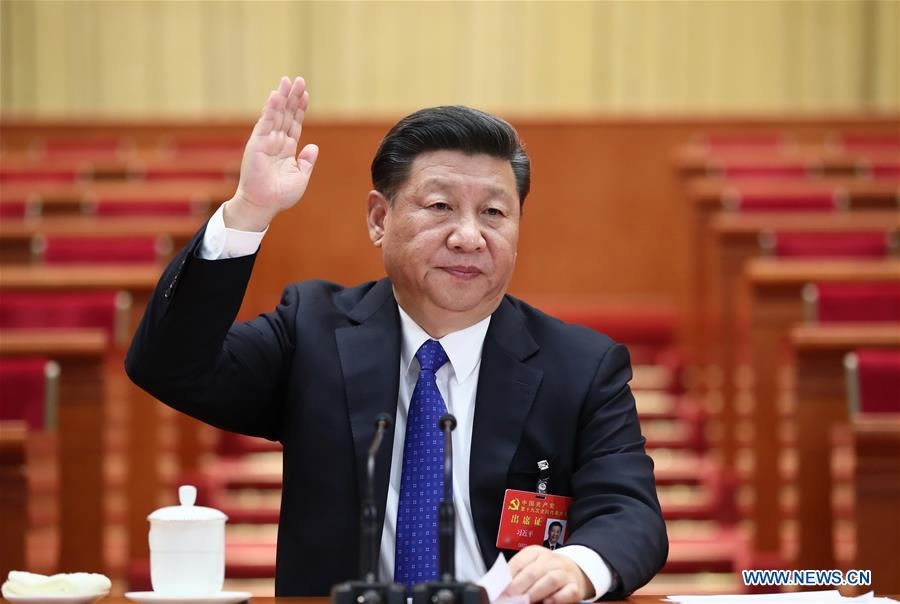
Xi Jinping presides over the preparatory meeting for the 19th CPC National Congress, at the Great Hall of the People in Beijing, October 17. /Xinhua Photo
Xi Jinping presides over the preparatory meeting for the 19th CPC National Congress, at the Great Hall of the People in Beijing, October 17. /Xinhua Photo
In January, pilot programs of the campaign were launched in Beijing as well as Shanxi Province in the north and Zhejiang in the east.
The programs will be expanded across the nation by the end of 2017 or early 2018. At the first session of the 13th National People's Congress (NPC) in March next year, a national supervisory commission will be set up and a draft law on national supervision will be submitted for approval.
Targeting blind spots
The reform is aimed at integrating resources in fighting corruption. The four-level supervisory commissions integrate the functions of discipline inspection, supervision, prosecution and auditing in the CPC, the government and judicial agencies.
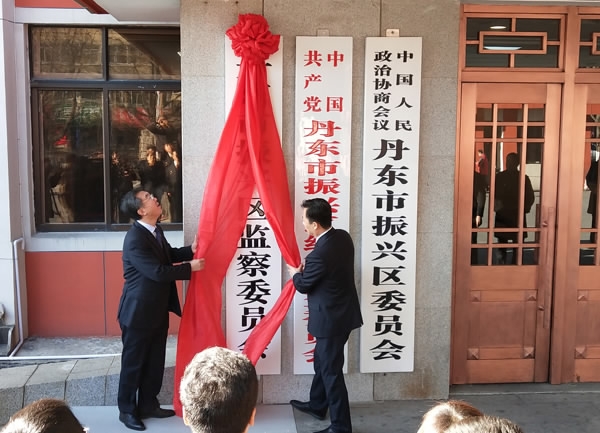
The Supervisory Commission of Zhenxing District, Dandong City in northeast China's Liaoning Province is unveiled on November 30. /Photo via CCDI.gov.cn
The Supervisory Commission of Zhenxing District, Dandong City in northeast China's Liaoning Province is unveiled on November 30. /Photo via CCDI.gov.cn
According to Lyu Xiaodong, a CPC discipline inspection official from Lishui city of Zhejiang, public employees who were not CPC members as well as non-government workers who exercise public power on behalf of the government used to be the blind spots for supervision authorities. But the loophole has been closed under the new measures.
Those working with people's congresses, people's political consultative conferences, hospitals, schools and even village committees are now included in the scope of supervision, said Li Zhenqi, a Beijing municipal supervisory commission official.
"The new system is more streamlined, unified and efficient," said Zhang Shuofu, director of the supervisory commission in Beijing.
After the reform, the number of people under supervision has reached 997,000 in Beijing, 1,315,000 in Shanxi and 701,000 in Zhejiang, increasing 3.75 times, 67.5 percent and 83.0 percent respectively, according to the CPC Central Commission for Discipline Inspection (CCDI).
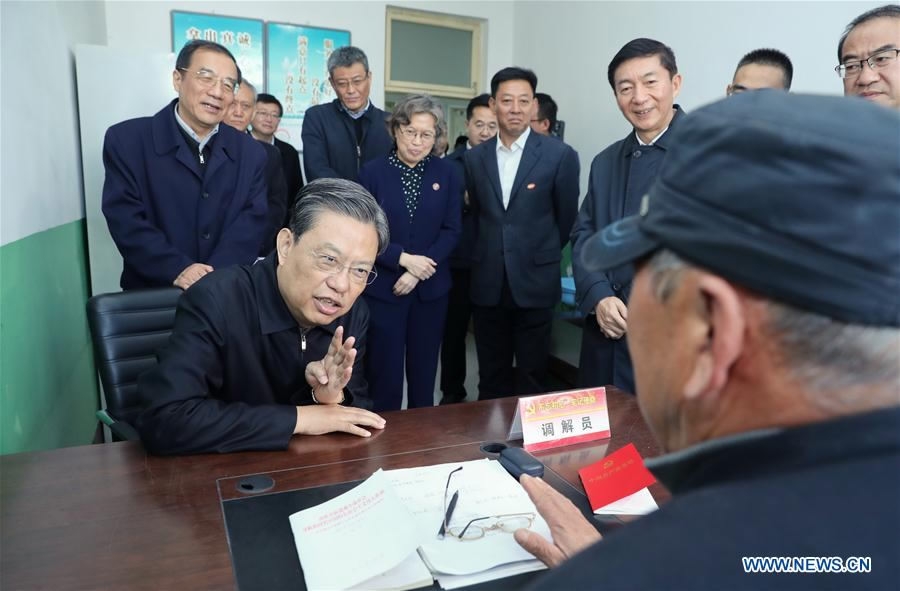
Zhao Leji (L, front), head of the CCDI, talks with a staff member as he makes a discipline inspection tour in Dongguan Township of Qixian County, north China's Shanxi Province, Nov. 10. /Xinhua Photo
Zhao Leji (L, front), head of the CCDI, talks with a staff member as he makes a discipline inspection tour in Dongguan Township of Qixian County, north China's Shanxi Province, Nov. 10. /Xinhua Photo
Summarizing the implementation of the pilot programs in November, the CCDI made it clear that the supervisory commissions are political institutions to facilitate anti-corruption work, not administrative or judiciary agencies.
"The Party exercises overall leadership over all areas of endeavor in every part of the country," The CCDI research office noted in an article on Wednesday. "As a result of the characteristics of China's political system, all state institutions exercising public power can be considered 'the government' in a broad sense."
As the reform deepens, the "broad-sense government" will be placed under supervision, the CCDI office said.
Anti-graft campaign: Overwhelming momentum
"Currently, the fight against corruption remains grave and complex," Xi, also general secretary of the CPC Central Committee, stressed in his report to the 19th CPC National Congress in October. "We must remain as firm as a rock in our resolve to build on the overwhelming momentum and secure a sweeping victory."
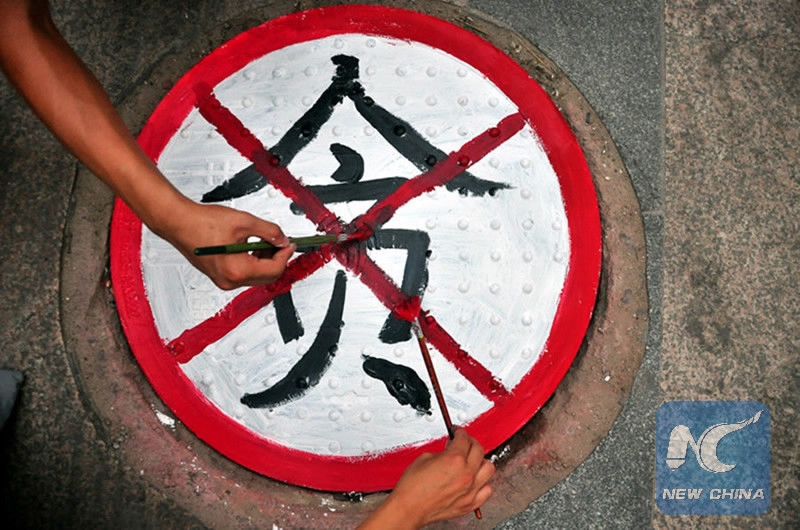
Two students paint "Anti-Graft" posters on a manhole cover in Anhui Province, east China. /Xinhua Photo
Two students paint "Anti-Graft" posters on a manhole cover in Anhui Province, east China. /Xinhua Photo
The nationwide anti-corruption campaign showed no sign of slowdown after the historic Party meeting.
Liu Qiang, deputy governor of northeast China's Liaoning Province, has been placed under investigation for suspected "severe disciplinary violations," the CCDI said in late November.
The announcement came two days after the downfall of another senior official – Lu Wei, former deputy head of the Publicity Department of the CPC Central Committee. Lu was suspected of serious discipline breaches and has been put under investigation.
This week, the 50th and the 51st of China's 100 most-wanted overseas fugitives suspected of corruption were captured.
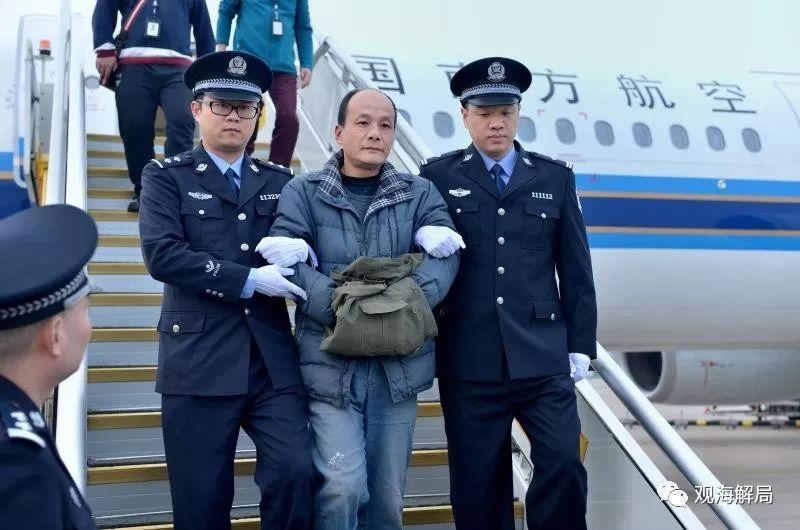
Zhou Jiyang (C), a former Party official in east China's Zhejiang Province, became the 50th returned fugitive from China's 100 most wanted list, on Dec. 5, 2017. /Photo via Fawan.com
Zhou Jiyang (C), a former Party official in east China's Zhejiang Province, became the 50th returned fugitive from China's 100 most wanted list, on Dec. 5, 2017. /Photo via Fawan.com
On Thursday, the CCDI website made public 52 cases of corruption or behaviors that harmed the people's interests.
The fight against corruption also continues in the military. Zhang Yang, a member of the Central Military Commission (CMC), committed suicide at his home in Beijing on November 23, after authorities launched an investigation into his links to two corrupt former senior military figures, Guo Boxiong and Xu Caihou, the CMC said.
(With inputs from Xinhua)

